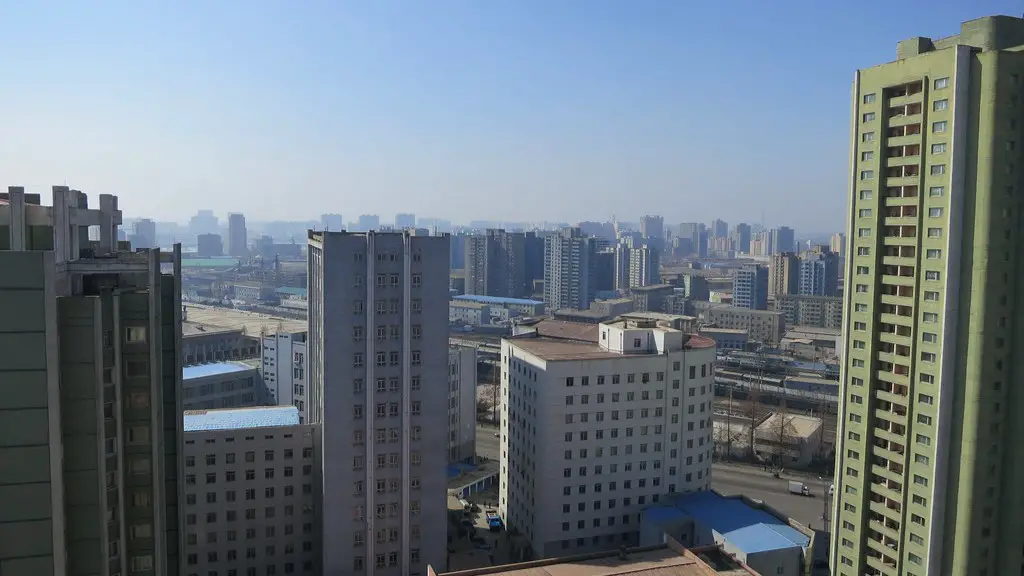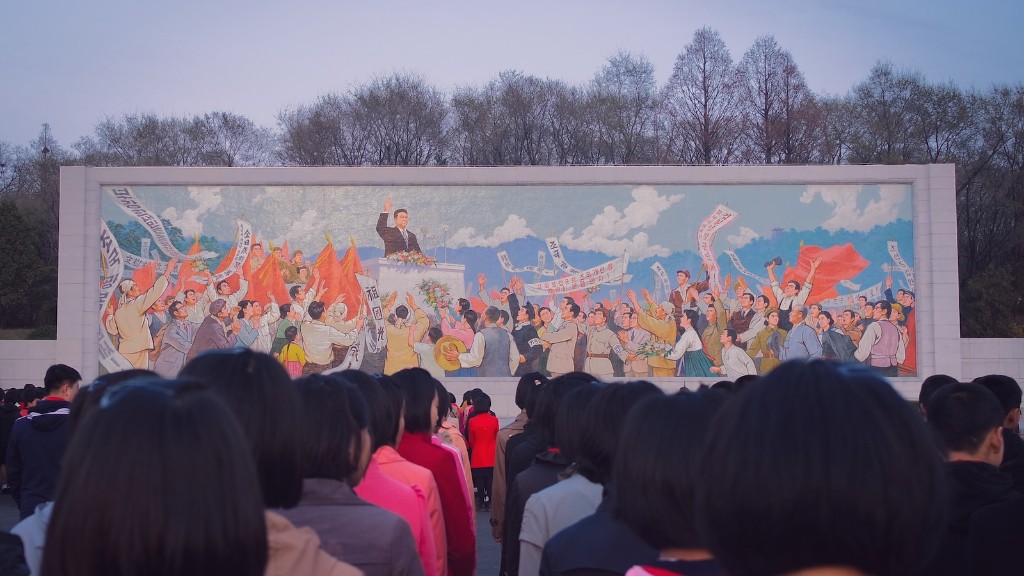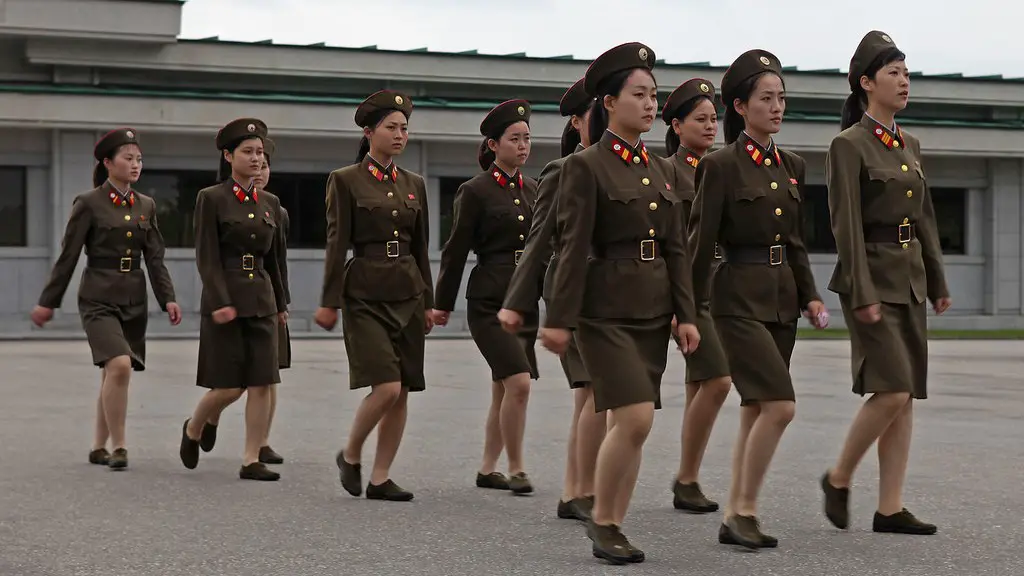The year 1950 saw a fateful and lasting moment in North and South Korea’s history that still reverberates in international politics today. The North Korean delegate, Choe In-gil of the Democratic People’s Republic of Korea announced that they were invading the South, starting the Korean War. Historians, economists and political analysts debate the causes and consequences of the invasion.
What were the motives of North Korea for invading South Korea? Historians suggest various motives and many of them have come to the conclusion that the Communist government of North Korea saw it as an opportunity to bring the whole Korean Peninsula back together under the Communist rule. The Soviet Union had supported the Korean Workers’ Party since 1945, and the idea had been supported by the leader of North Korea, Kim Il-Sung, since 1948. In an increasingly divided world following World War II, the Communist bloc had become increasingly isolated from the capitalist world and saw the Korean War as an opportunity to spread the Communist ideology to a neighbouring country and unify the whole of the Korean Peninsula under the same ideology.
Nevertheless, the North Korean leadership had many other reasons to invade South Korea. North Korea was a very poor state, which had been struggling to survive amidst the harsh stance it had taken against capitalists and vehemently rejecting the support offered by the United Nations. On the other hand, South Korea was a newly formed nation, encompassing people from all over the peninsula with a significantly better quality of life. North Korea saw the opportunity to invade South Korea and bring its same ideology across the border.
Furthermore, North Korea had political reasons to invade South Korea. North Koreans were highly suspicious of the UN’s presence in South Korea and the US’s policy of containment against the Communist country. Therefore, it seemed logical for the North Koreans to try to infiltrate the South, expand their power and spread their own ideology across the whole peninsula. Moreover, North Korea’s socialist economy was struggling heavily, and its citizens were starving. By invading South Korea, the North Korean government hoped to gain access to the South’s resources and improve its economy.
Grievous Consequences of the Korean War
The invasion of South Korea had devastating consequences both for the North and South Korea’s population.The Korean War resulted in a conflict that lasted 3 years and cost the lives of 2 million people. Apart from causing countless deaths, the war had serious economic and political repercussions, both for North and South Korea.
The war left North Korea in dire economic straits. It was already facing an economic crisis before invading South Korea, and the war only worsened the situation. In its attempt to acquire resources to survive, North Korea lost many industrial plants, which negatively impacted its economy and infrastructure.
The war also caused huge political fractures in North Korea. Political leaders from the south who resisted the invasion were killed or sent to concentration camps. It caused a disruption in the political structure of the country and forced the North Korean government to become even more authoritarian in order to maintain control.
South Koreans’ Perceptions of North Korea
The South Koreans’ perceptions of North Korea worsened over time as a result of the war. South Korea had been a democratic country since 1945, but its people were now faced with an enemy with a very different ideology. The South Koreans’ perceptions of North Korea and the Communist ideology in general were deeply affected by the war, leading to strong political divisions between the North and South.
The opinions of the South Koreans can be summed up in the following statement: North Korea is an oppressive and oppressive regime which has injured the people of South Korea and has not hesitated to use violence in the pursuit of its own political goals. Furthermore, it has posed serious threats to the security of the South Koreans, economically and politically. South Koreans now fear North Korea and the possibility of another invasion or conflict.
Impact of the War on International Relations
The Korean War had a major impact on international relations. It was the first major Cold War conflict between the US and the Soviet Union and their respective allies. The war caused a rapid growth in the Soviet-US rivalry, with both countries arming themselves and engaging in a powerful propaganda war.
The war further increased the tensions between the two Cold War rivals and damaged the effort to reunite Korea. While the war caused immense destruction, the two countries and their respective allies, China and North Korea, never found a way to reach a peace treaty or reunite Korea. The war and its consequences remain active in the international political discourse.
North Korean Security and the Korean War
The Korean War has had an effect on the security of North Korea. Due to the failure of its nuclear non-proliferation efforts and its increased emphasis on developing nuclear weapons, many believe that North Korea has become increasingly insecure in the face of US aggression and its neighbours.
The US and its allies have consistently imposed economic sanctions on North Korea in an attempt to stop the development of nuclear weapons. In response, the North Korean government has invested heavily in military production and the development of weapons of mass destruction. It has also extended its influence to neighbouring countries and gained allies in China and Russia in order to protect itself and its nuclear capabilities.
Many experts believe that, despite the war, North Korea remains insecure and is looking to increase its military strength in order to protect itself in case of another war or attack.
Negotiations and the Korean War
The international community has been continuously trying to mediate the peace of Korea through negotiations. The Six-Party Talks were an important initiative, with the US, Russia, China, Japan, South Korea, and North Korea coming together in order to discuss peace and security in the region. Nevertheless, the talks have failed to produce meaningful progress towards a real peace agreement.
In addition, despite various efforts for reconciliation, the tensions between the North and South have remained high. The South Korea government does not trust the intentions of the North Korean government and perceives it as a threat.
The US has been the main driver of the talks, but it has not been very successful in pushing for a comprehensive peace agreement. Instead, both sides have used the talks to further their own interests and positions, refusing to budge from their respective positions.
Economic and Political Situation in North and South Korea
After the war, the North and South Korean economies have grown at different rates. While the South Korean economy has moved towards a more open and prosperous model, the North has remained poor and underdeveloped.
South Korea has become an export powerhouse while North Korea has failed to develop its economy. The South Korean economy is prosperous and its citizens have one of the highest levels of human development in the world. On the other hand, North Korea’s economy is still struggling and is characterized by a higher rate of poverty and inequality than in the South.
Similarly, the political situation remains tense. In South Korea, democracy and human rights are respected, while in North Korea, the government remains authoritarian and oppressive. North Korean citizens lack basic rights and freedoms, and the government has been linked to various human rights abuses.
Future Perspectives on the Korean War
The future of the Korean conflict remains uncertain, with no signs of an imminent solution. The US, China, and Russia have all expressed interest in finding a peaceful solution, but no progress has yet been made. Furthermore, since Kim Jong-Un took power in North Korea, the situation has become even more complex, as the North Korean government has become even more authoritarian and resistant to external pressures.
Furthermore, North and South Korea remain divided, and the reunification process has not gone forward. Steps like the Kaesong Industrial Complex, which had opened a channel between the two countries, were stalled due to the tense relations. It is clear that meaningful dialogue between the two formations is still far off and the tensions remain high.
Finally, North Korea’s nuclear program is continuing to cause tension in the region. North Korea has conducted several underground nuclear tests which have only increased the tensions. In this context, the continued presence of US forces in the region could be seen as a major source of instability and a potential threat to peace in the region.
International Efforts for Peace
In spite of all the challenges, international efforts to promote the reconciliation of the two Koreas have not stopped. The UN, the US and various mediators have been engaged in diplomatic activities to foster talks and bring the two nations closer.
The UN has consistently promoted peace in the Korean Peninsula through economic aid and humanitarian assistance. In addition, the UN has supported peacebuilding activities and confidence-building measures between the North and South, as well as initiatives to disarm North Korea.
The US has also been actively engaged in diplomatic efforts with North Korea. This included the Six-Party Talks and bilateral negotiations between the US and North Korea. Furthermore, the US has provided economic aid to North Korea in an attempt to incentivize its denuclearization.
Finally, a wide range of international organizations, such as the International Red Cross, Amnesty International and Human Rights Watch, have been actively advocating for dialogue and reconciliation between the two Koreas in order to create a lasting peace.
Conclusion
The Korean War has been an ongoing issue in the international political discourse, causing tensions between the two Koreas and threatening the peace and security of the region. North Korea’s motives for invading South Korea were numerous, but the consequences have been devastating.
Despite the numerous challenges facing the peace process, international efforts have not stopped, and the two Koreas still have an opportunity to reconcile and create a lasting peace in the Korean Peninsula.


